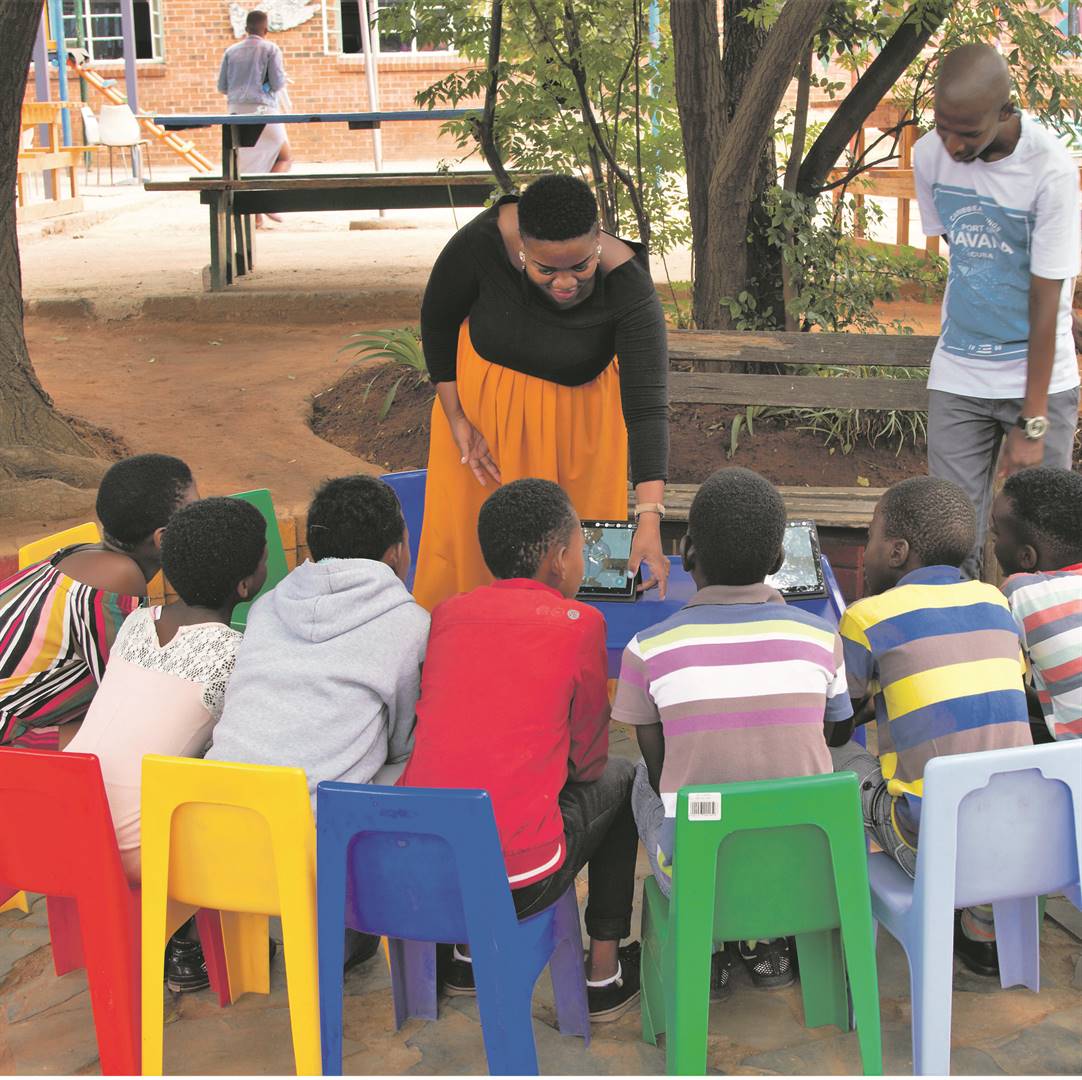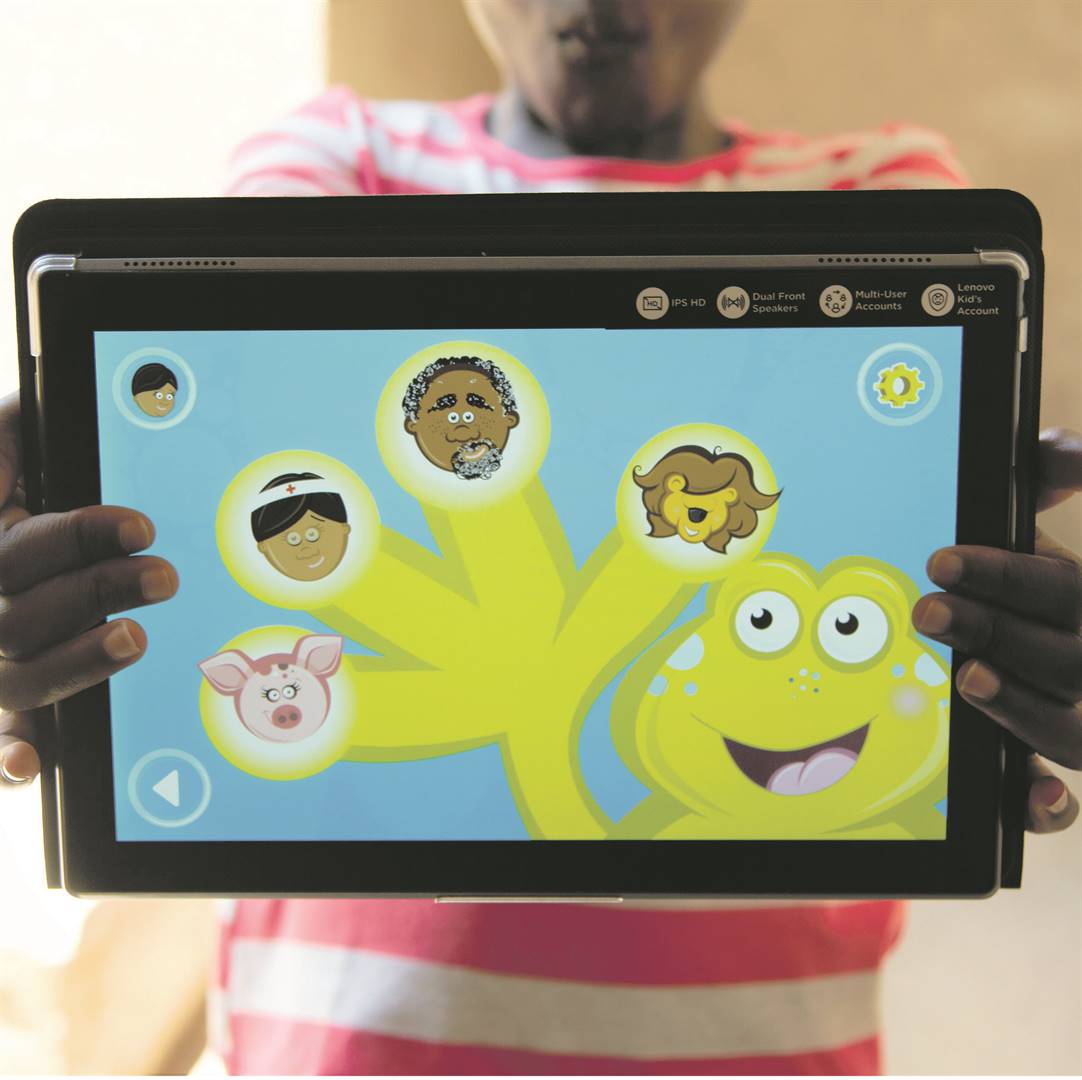
Meet Sibusiso. He is a frog.
He has a germ in his body, but the germ is too strong to kill with normal “goodbye” medicine. But you can give it “good night” medicine and you can put it to sleep in the morning and the night and it can’t do anything to you.
But if you don’t take the goodnight medicine, the germ is going to wake up and fight with your body. This simple narrative of a frog living with HIV is how healthcare workers can explain the psychologically and emotionally complex diagnosis of HIV to children between the ages of two and 12.
The latest UNAIDS statistics estimated there were 280 000 children (aged 0 to 14) living with HIV in South Africa in 2017, only 58% of whom were on treatment.
Through a newly launched mobile app, the KidzAlive Talk Tool – created by Keep A Child Alive and NGO Zoë-Life, in collaboration with the Qualcomm Wireless Reach – healthcare workers are being equipped with tools on the language to use to help children understand the virus in relation to them and the importance of adhering to their medication.
“So you kind of have this language that kids can understand and say, ‘Oh well, I’m going to be the boss of that! I’m going to put this germ to sleep every night’, so where is the fear in that? There is none,” Dr Stephanie Thomas, executive director at Zoë-Life, told City Press this week.
Thomas said they had noticed an all-too-glaring gap in education awareness programmes or even materials directed at children, specifically – “adults and adolescents, yes, but not much for children”.
“We started asking nurses at the clinics we already partner in KwaZulu-Natal and Gauteng on what the barrier was in terms of working with children, because those clinics are full of children so why are they not testing them? And the response we got from the health providers was quite overwhelming. They said we are absolutely petrified of talking to a child,” Thomas said.
“They said to us, ‘We have been trained on how to take blood from a child, how to clean their wounds but we aren’t trained to talk to them on this sort of thing that has so many layers … we are not psychologists, we’re nurses and doctors, how do we talk to them … what words do we use? What if the child doesn’t understand us, what if they have an emotional breakdown, what if they go out and commit suicide?’”
Although great strides have been made in the fight against HIV/Aids and the prevention of mother-to-child transmission globally, including in South Africa, the NGO said social and structural barriers were leaving children and adolescents behind.
Primary caregivers fear getting their children tested because of the possibility of having to disclose an HIV-positive result and the stigma of living with HIV. And healthcare workers are often overwhelmed by the difficult task of talking to young children who are at risk and who require counselling and testing.
“We also spoke to parents [who come to the clinics] about their concerns on talking to their children about HIV. They told us, ‘We are struggling ourselves with our diagnosis, so you want me to test my child then my 10-year-old who will ask me, but mommy, how did you get this? I don’t want to talk about my rape to my child. I don’t want to talk about their father who has never been there.’ So this was really complex,” Thomas said.
Then in came the app.
In a recent pilot study of the KidzAlive Talk Tool App, 33 healthcare workers at private – and government – healthcare facilities in Gauteng and KwaZulu-Natal tried out the app following in-depth training.
Thomas said that during their training, healthcare workers experienced a 62% increase in confidence and competence in providing age-appropriate counselling and care for HIV-exposed and HIV-infected children.
Healthcare workers use the app to engage children in the animated journey of a frog, Sibusiso, as he goes for HIV testing, learns his positive status and comes to understand the importance of adhering to his treatment.
The app has built-in prompts to assist healthcare workers in guiding children through their own journey of HIV testing, learning their test results, overcoming stigma and learning about prevention and healthy living.
The app is available in three languages and includes interactive games that keep the children focused and engaged, and increases their retention of information.
The app isn’t available to the public – but it is available to healthcare providers registered with the health department.
Thomas said they were open to working with individual organisations, who can reach them through their website.




 Publications
Publications
 Partners
Partners









